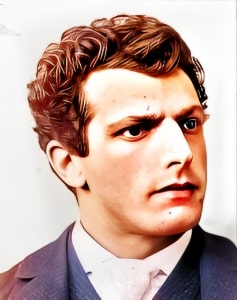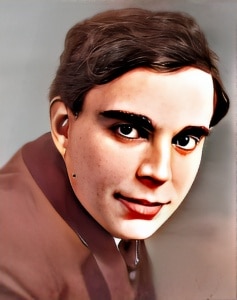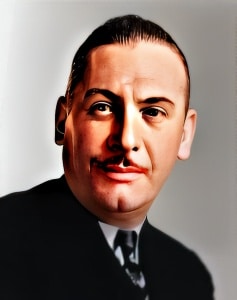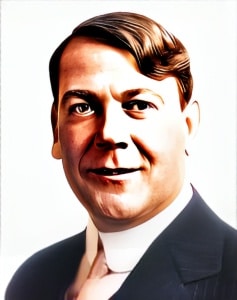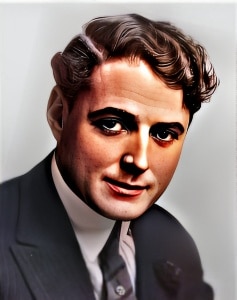 J. Warren Kerrigan, born on May 25, 1879, in New Albany, Indiana, was a prominent leading man of the silent film era.
J. Warren Kerrigan, born on May 25, 1879, in New Albany, Indiana, was a prominent leading man of the silent film era.
With his striking good looks and charismatic screen presence, he captivated audiences in a career that spanned the early years of Hollywood. Kerrigan’s contributions to cinema, particularly during the formative years of the industry, earned him a place in the pantheon of silent film stars.
Kerrigan’s journey into the world of entertainment began on the theatrical stage, where he honed his acting skills and developed a strong foundation in the performing arts. This early experience served him well when he transitioned to the world of silent films. His handsome appearance and natural talent made him an ideal leading man, and he quickly became a sought-after actor.
One of Kerrigan’s early successes came with his role in the 1910 silent film “Ramona.” This adaptation of Helen Hunt Jackson’s novel was one of the first feature-length films ever made, and Kerrigan’s portrayal of the dashing hero helped establish his reputation as a leading man in Hollywood.
In the years that followed, Kerrigan appeared in a string of successful films, often cast as the romantic lead. His on-screen chemistry with leading ladies like Mary Pickford and Lillian Gish endeared him to audiences and contributed to the box office success of these films.
Kerrigan’s career flourished during the 1910s, and he became one of the era’s most recognizable faces. His roles in films such as “The Little Princess” (1917), where he starred alongside Mary Pickford, showcased his ability to bring charm and depth to his characters.
One of Kerrigan’s most significant career moments came with his role in the landmark Western film “ The Covered Wagon” (1923). This epic silent film depicted the trials and tribulations of pioneers traveling the Oregon Trail. Kerrigan played a leading role, adding his star power to the film’s ensemble cast. “ The Covered Wagon” was not only a critical and commercial success but also a pivotal moment in the history of the Western genre in cinema.
As Hollywood transitioned to sound cinema in the late 1920s, many actors faced challenges in adapting to the new medium. Kerrigan continued to work in sound films, but his career began to wane. The transition was not seamless for all silent film stars, and some struggled to find their footing in the new era.
Despite the challenges of the sound era, J. Warren Kerrigan’s contributions to silent cinema remain an integral part of Hollywood’s history. His charismatic presence and ability to portray romantic and heroic characters left an indelible mark on the medium.
Kerrigan’s career may have waned with the advent of sound, but his impact on the silent film era endures. He remains a celebrated leading man of his time, and his work continues to be studied and appreciated by film historians and enthusiasts. J. Warren Kerrigan’s legacy is a testament to the enduring power of silent cinema and the lasting appeal of its stars.
Loading live eBay listings...

